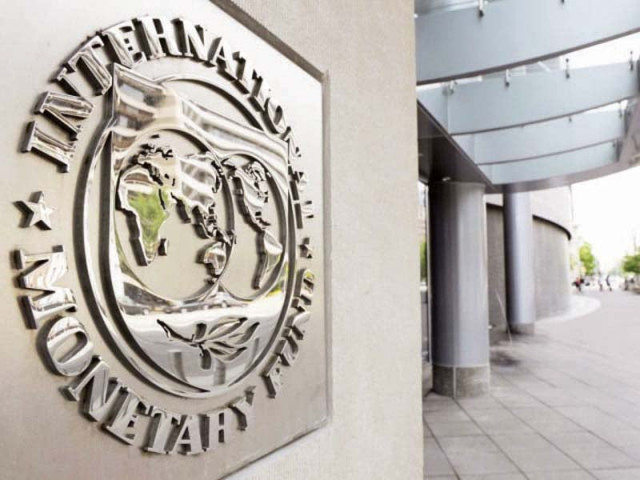Govt in comfortable position ahead of IMF review
Dar says all five performance criteria have been met

The IMF has already disbursed $5 billion after Pakistan completed nine reviews. PHOTO: FILE
Just weeks before the next round of negotiations with the International Monetary Fund (IMF) for the release of the second last loan tranche of $500 million, the government has claimed that it is in a comfortable position to meet all key conditions except for privatisation.
Finance Minister Ishaq Dar expressed satisfaction with results of the second quarter (October-December) of the current fiscal year 2015-16, according to a statement issued by the Ministry of Finance on Monday. He chaired a meeting to assess preparations for the 10th IMF review.
Eighth review completed: IMF grants Pakistan two waivers on budget deficit

“All the five performance criteria have been met,” said Dar while talking to The Express Tribune later.
Finance Secretary Dr Waqar Masood briefed the minister in the meeting on the progress on various reform measures under the IMF programme. The status of actions taken relating to the five performance criteria and three indicative targets, agreed with the IMF, were reviewed.
The next round of talks will begin on January 26 in Dubai and will continue for nine days. It will be the third last round of talks under the $6.2 billion bailout programme for the release of the second last loan tranche of around $500 million.
The IMF has already disbursed $5 billion after Pakistan completed nine reviews. However to achieve the milestones, the IMF gave 14 concessions - the highest under any programme, showing its leniency.
Pakistan agrees to slap billions in new taxes
Officials of the finance ministry said there were indications that the government would achieve all the five performance criteria - the key benchmarks that either have to be met or require waiver from the IMF executive board.
These conditions are related to budget deficit, net international reserves, net domestic assets, reduction in borrowing from the central bank and reducing the swap loans obtained by the central bank.
Favourable conditions
According to the officials, initial indications suggest that the government has achieved the target for restricting the budget deficit to Rs625 billion for the July-December period. However, they said there were problems in achieving the non-tax revenue target on account of mark-up and dividend receipts.
Although the Federal Board of Revenue met the goal in the October-December quarter by collecting Rs785 billion, it missed the first half (July-December) target of Rs1.390 trillion by a small margin of Rs5 billion.
The government would not have much problem in seeking relaxation from the IMF management, as it has already implemented a Rs40 billion mini-budget.
Initial data suggests that the government will achieve the indicative target for circular debt for the second quarter, thanks to low prices of crude oil. Water and Power Minister Khawaja Mohammad Asif on Monday claimed that by December 31, the recovery of bills had improved to 93%, resulting in additional revenues of Rs56 billion.
Inconclusive IMF talks extended for two days
He said lines losses were also reduced to 17.9%, resulting in savings of Rs12 billion.
High line losses and low recovery of electricity bills are among key reasons for continuous build-up of the circular debt that amounted to Rs661 billion as of September last year.
Privatisation woes
However, the government is likely to have tough time on the privatisation front. It has failed to meet the structural benchmark for the privatisation of Pakistan International Airlines as it missed the December 31 deadline to invite investors for the airline’s sell-off.
The situation is also not very encouraging in the case of privatisation of the Faisalabad Electric Supply Company (Fesco). A decision is pending on the deadline for submitting the Statement of Qualifications (SOQs) by the investors.
The government’s commitment to privatising loss-making enterprises has weakened in recent weeks, as it is set to roll back the entire power sector privatisation plan.
However, it has met the indicative target for disbursing Rs46 billion among beneficiaries of the Benazir Income Support Programme during the first half of the current fiscal year.
Published in The Express Tribune, January 5th, 2016.
Like Business on Facebook, follow @TribuneBiz on Twitter to stay informed and join in the conversation.



















COMMENTS
Comments are moderated and generally will be posted if they are on-topic and not abusive.
For more information, please see our Comments FAQ